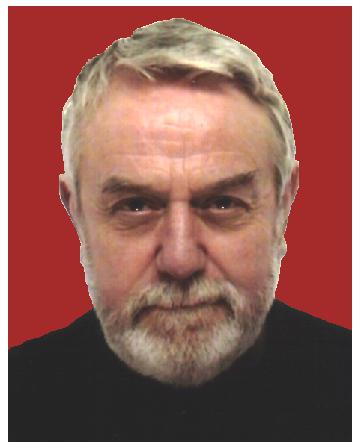
In their e-book Shakespeare Bites Back, written on behalf of the Shakespeare Birthplace Trust, Paul Edmondson and Stanley Wells called for the removal of the question mark against the year of Marlowe's death on his memorial window in Westminster Abbey's Poets' Corner. This was a demand they had already made in a letter to The Times newspaper, and which they repeated in their book Shakespeare Beyond Doubt. Nevertheless, at the moment, the question mark remains.
Speaking at the window's dedication ceremony in 2002, the then President of the Marlowe Society, Colin Niven, explained that, by asking for the question mark to be included, the Society merely queried, not denied, the date of Marlowe's death.
If it was doubtful then, later research has made it even more so. Therefore, despite my essay Marlowe's Sudden and Fearful End being described as the "last word on the subject" in a 2009 talk by the then Chairman of the Society, former Lord Mayor of Canterbury, Peter Wales, I have now updated it and promoted it to pride of place here.
I was both surprised and delighted to be able to report that on 14th December 2007 an essay of mine entitled "Hoffman and the Authorship" was declared joint winner of the prestigious Calvin & Rose G. Hoffman Prize for "a distinguished publication on Christopher Marlowe". As previous winning entries had nearly always been by senior professional scholars, and about subjects other than the Shakespeare authorship, it was particularly gratifying that this time it was just by an amateur enthusiast, and on the subject most dear to the heart of the person whose bequest made this prize possible, Calvin Hoffman.
The essay itself runs to over twenty thousand words, and contains much that has been posted here in one form or another already, but for anyone who is still interested I have posted a copy of it here: HOFFMAN AND THE AUTHORSHIP
My essay "Arbella Stuart and Christopher Marlowe" also won a share of the prize in 2012. I still haven't done anything about publishing it, but if anyone would like to read it, please let me know at the email address given at the bottom of this page.
A short explanation of who I am, and of how I came to develop this site.
THE WORKS OF CHRISTOPHER MARLOWE
Although the works of Marlowe can be found on the internet, it is not easy to obtain complete versions on a single file, and with modern spelling. I have now managed to
complete modernized editions of all of his known works in HTML Here are the links for the plays:
The complete works in the original spelling may be found at the Tufts University website.
CHRISTOPHER MARLOWE - Some Biographical Facts
An attempt to give as accurate an account as possible of what we actually know about Marlowe's life, with links to transcripts of all of the main documents mentioned. I have also made available, as a Microsoft Excel spreadsheet, a detailed "documentary chronology" of all the currently known events of his life and just where this information comes from.THE SPELLING OF MARLOWE'S NAME
People often express some puzzlement over the number of different ways in which the name 'Christopher Marlowe' was spelt at various times, and wonder if we are in fact right to assume that they all refer to the same person. This short paper considers that question. Various transcripts and publications relevant to the biography of Christopher Marlowe. The information given in the first (1992) edition of Charles Nicholl's book about Christopher Marlowe, "The Reckoning" is examined, the reasoning challenged, and a different conclusion, based upon the same facts, is reached.MARLOWE'S SUDDEN AND FEARFUL END
A thorough examination of the various accounts of Marlowe's apparent death at Deptford. The circumstances are reconsidered, and several theories reassessed. Only one theory satisfactorily answers all questions raised. The men were there with the sole purpose of faking Marlowe's death, and it would indeed have been surprising had there NOT been a dead body lying there at the end of the day. The inquest into Marlowe's death should have been held by two coroners - the Queen's Coroner, William Danby, and one of the coroners for the county of Kent. How is it, therefore, that William Danby not only officiated on his own, but found out about it in the first place?WAS MARLOWE'S INQUEST VOID? (2)
Whilst no evidence has been found that Danby was also one of the coroners for Kent - and if he had been it should have been stated in the report of the inquest - this would have explained his officiating on his own (but also why Deptford Strand would have been the best place in the country for the suggested faked death to have been staged). New information about the membership of the jury at Marlowe's inquest seems to indicate that a friend of Thomas Walsingham may have been specially selected to act as their foreman.THE STRATFORD MONUMENT - A Riddle and its Solution
Taking the words "read if thou canst" on the monument as an invitation to solve a riddle, we discover that there is indeed a hidden meaning there, and that it is not only Shakespeare who is commemorated.A few links for those who are interested in Christopher Marlowe, but don't know where else on the internet to start looking. The Wikipedia entries for "Christopher Marlowe" and "Marlovian theory" were pretty good (the last time I looked!) however.
THE MARLOWE-SHAKESPEARE CONNECTION BLOG
For the past few years I having been contributing items to the blog run by Carlo DiNota, several of which aren't on this website. Here are the links:
An essay in which I use a stylometric approach to determine whether the order in which the Sonnets were printed is likely to have been the same order as the one in which they were written.
INDEX OF MAIN ITEMS
© Peter Farey, 1997-2014